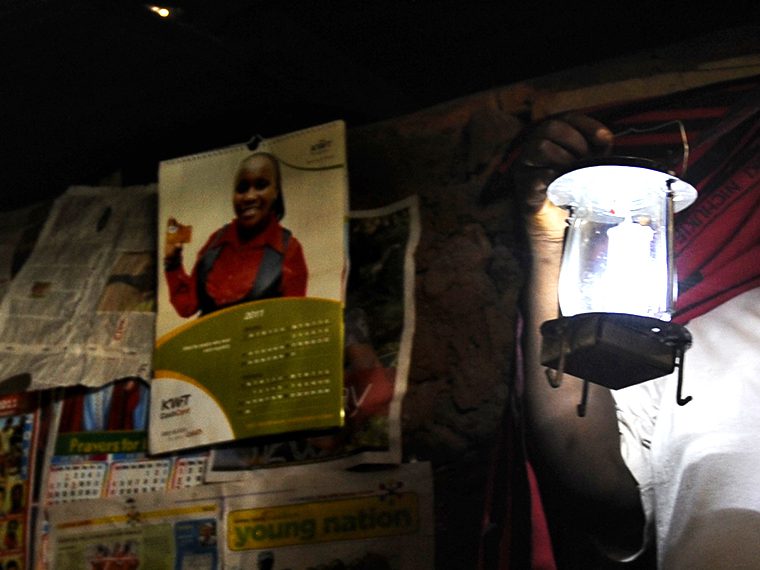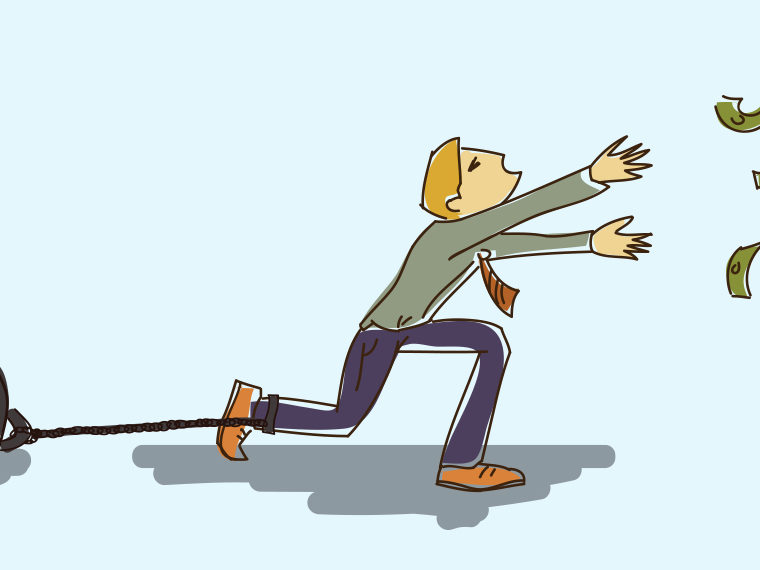New research suggests increased risk of illness and death in middle age, on top of longer-lasting income penalty
The roughly 4 million people expecting to enter the job market in 2020 — higher education graduates, high school graduates, those exiting the military, others — have in recent weeks seen bright prospects turned woefully dim by a spreading global pandemic. Mass layoffs and hiring freezes quickly replaced a red-hot job market.
The jolt to budding careers won’t likely be short-lived, either, as entering the job market during a recession exacts a long-term penalty in terms of lower income, as researchers have long known. Now, a study that follows millions of Americans who came of age in 1982’s depressed job market shows something else: they were likelier to die in their 30s and 40s than generations that came of age during better times.
Although the group did not experience especially high suicide rates, higher rates of liver and heart disease, lung cancer and drug overdoses led to more middle age deaths, according to the working paper by Northwestern University’s Hannes Schwandt and Till von Wachter of UCLA’s Economics Department.
Opt In to the Review Monthly Email Update.
Young recession entrants also experienced higher rates of divorce and fewer children by middle age than those beginning careers when unemployment rates were lower, the study finds. The unlucky group’s substantial lags in starting pay caught up to normal levels in their late 20s, but their wages fell behind again in their 40s, according to the study.
The results paint a particularly grim picture for youth starting careers in today’s extraordinarily shaky job market. The findings add to an extensive body of research describing serious, potentially lifetime disadvantages for youth that come of age when unemployment rates are high.
In a previous study, published in 2019 by the Journal of Labor Economics, Schwandt and von Wachter demonstrated that initial difficulties entering the labor market during economic recessions led to much weaker earnings and career advancement up to 10 to 15 years out for workers across race and education levels. The researchers’ latest working paper suggests the negative impacts may be even longer lasting than previously understood.
“Our findings demonstrate that temporary disadvantages in the labor market during young adulthood can have substantial impacts on lifetime outcomes, can affect life and death in middle age, and go beyond the transitory initial career effects typically studied,” note the authors, both of whom have published extensively on labor markets and careers.
Their working paper links potentially fatal health issues to unfortunate timing on career starts, across race and gender. The bad luck of graduating into a weak job market may persist for a lifetime.
Unlucky Career Timing, Early Death
Mortality for males and females at age 49 increased by about one death per 10,000 for every percentage point increase with the graduation year’s unemployment rate, according to the findings. The authors followed unlucky labor market entrants until age 50. They calculated that if differences in mortality were sustained until the end of subjects’ lives, life expectancy would fall by six to nine months for the roughly 4 million Americans that turned 18 in 1982, when the unemployment rate was 3.9 percentage points higher than normal, according to the study. That equates to between 2 million and 3 million life years lost for that group, the authors note.
The recession entrants aren’t dying more often from colon cancer or car accidents, von Wachter says in an interview. Their higher mortality rates are associated with more alcoholism, drug abuse and smoking, according to the working paper. “These are caused by changes in behaviors,” possibly established during their more stressful initial career struggles, he says.
Higher rates of death from heart disease also point to stress at the outset of their careers that takes a toll on long-term health, he says. Finding a great job during a recession is especially hard for inexperienced young people, when large, dominant firms typically stop hiring.
Unlike Schwandt and von Wachter’s recent work, most research in this field focuses exclusively on recent college graduates. Those studies suggest that even Ph.D. economists experience persistent career disadvantages when they graduate into recessions.
Through no fault of their own, recent graduates in weak job markets are unemployed longer and land in less prestigious jobs than they would in more normal times, according to the consensus. They start careers at pay about 10% to 15% less than peers who graduated when unemployment rates were three to four percentage points lower, sometimes just a year or two earlier. Lifetime earnings losses range from about 5% to 20% of their luckier peers.
Over the first 10 years of their careers, cumulative losses for the recession entrants range from about 5% to 11%, versus luckier peers over the same period, depending on the level of education. Those with a high school degree suffer losses closer to 10%, those with a college degree suffer losses of 5%.
Say you’re a well-educated professional expecting to average $100,000 income per year in the first 10 years of your career. A 5% penalty would trim $50,000. A high school graduate expecting to earn on average $30,000 per year in the first 10 years would suffer a $30,000 loss. (If one generated present values by discounting future earnings stream using the interest rate, the losses would be a bit smaller.)
Von Wachter says that in the earlier studies, “the good news was that they were catching up.” Pay for the recession graduates rose gradually and seemed to level out with their luckier peers after 10 or 15 years of work, according to several studies, including one by University of Toronto’s Philip Oreopoulos, von Wachter and Canadian government researcher Andrew Heisz published in 2012. Because of data limitations, few studies suggest what happens to those graduates later in life.
In their first study, von Wachter and Schwandt extended this finding to workers of all educational backgrounds in the U.S. In fact, lower educated workers experience larger short-term losses in earnings, temporarily depend on the social safety net and still experience temporary increases in poverty after entering the labor market in a recession.
In their latest working paper, Schwandt and von Wachter reveal that young recession entrants, highly educated or not, fall behind again in middle age. “Earnings go down again, they have fewer children and are less likely to be married.” And they are likelier to die early.
White men seemed particularly vulnerable, according to the working paper. They were likelier to die “deaths of despair” than their non-white counterparts, although all types of recession entrants saw higher midlife mortality rates. White men also experienced more divorce and wage reductions at midlife. Non-whites experienced harsher and longer earnings hits early on.

Beyond College Graduates and Paychecks
In their first study, Schwandt and von Wachter devised a study approach to get around several problematic issues of research in this field. It’s hard, for example, to know when someone is starting a career. College students typically start at graduation (hence, their popularity as study subjects), but recent graduates are only a small portion of any job market, and they don’t answer questions about factors such as race and education level that might exacerbate or mitigate effects. Following subjects for many years is also difficult. Some studies do this, such as the National Longitudinal Survey of Youth from 1979, but the data sets are small.
Schwandt and von Wachter built artificial cohorts of individuals exclusively by age and state of birth. In the mortality study, for example, the cohorts they focused on included 16-to-22-year-olds around 1982, a time when the U.S. unemployment rate was about 11%. (By comparison, the rate was 6% three years earlier and 7% three years later.) To compare cohorts, they used state-level unemployment rates.
The researchers established cohort details using state-level population data, such as ethnic make-up and migration and education rates, as well as vital statistics data such as divorce, births and causes of death. By comparing the short- and long-term fates of cohorts facing variously welcoming job markets, they could make nuanced inferences about what type of newcomer gets hit hardest, and longest, by a recessionary start. In their new working paper, the authors employ this methodology to harness large data on all deaths occurring in the United States and to make inferences into the detailed causes of death of unlucky labor market entrants.
The authors applied the approach to their Journal of Labor Economics study. They found that a recessionary career start drops earnings across race, education and class for at least the 10 years noted in studies for college graduates. Minorities and high school dropouts experienced the most drastic pay differences from peers that entered better job markets, according to the findings.
Youth that cannot find substantive work right out of school typically are ineligible for unemployment benefits, food assistance and similar government help, the authors note. But the researchers find that persistent poverty among those unlucky cohorts led to substantially higher payouts of SNAP (food assistance) and Medicaid (medical benefits) for nearly a decade after they entered the weak job market. All groups starting in recession, except those with at least some college, were likelier to collect Medicaid benefits.
Why Can’t They Just Get Over It?
Schwandt and von Wachter’s findings don’t directly address why recessionary career starts plague health, wealth and family decades later. But their research and other studies in the field suggest heightened anxiety resulting from early economic hardships builds up and takes its toll over subsequent decades, von Wachter says.
“To be front-loading that much stress, physically and mentally, may make people vulnerable for bad things happening later in life,” he said in an interview. He described this possible scenario to explain the fate of the young recession entrant:
- In a difficult job market, the candidate finds work that’s less prestigious and lucrative than his peers landed in better times. His weaker resume leads to comparatively smaller pay gains in the early years, which ordinarily is the period of fastest earnings growth of any career.
- It takes about three to five years for him to work up to the better job he had expected. He spends another decade or so climbing his way up the career ladder and finally starts collecting wages comparable to those of his luckier peers. But throughout these years, he’s likelier to smoke, drink heavily or engage in other riskier behaviors. He’s likelier to get divorced and he’s likelier to be childless.
- The wage equality doesn’t necessarily last. In his 40s, he’s likelier to see his earnings decline more than those with luckier starts. He seems likelier to lose his job during another slow business cycle. Perhaps his habits, his health or his work experience makes him more vulnerable. Whereas his risk of dying early was the same as luckier peers in his 20s, it begins to creep up in his late 30s and grows steadily higher, up to age 49.
The scenario aligns with findings from numerous studies describing persistent effects of temporary recessions on other populations.
In 2017, Princeton University economists Anne Case and Angus Deaton found steady increases in drug, alcohol and suicide deaths among men and women all across rural and urban America. They linked the trend to steadily worsening job and earnings prospects for workers who lack college degrees. UCLA economist Adriana Lleras-Muney comments that these declines in life expectancy generally are likely because of disadvantages that started when careers were just beginning. Other studies find that getting laid off or even enduring recessionary periods early in life can lead to premature death years later, and to lower birth rates in the long run.
Health issues could explain some of the pay and family disadvantages seen in Schwandt and von Wachter’s cohorts, as poor health often dilutes productivity and pay, and affects divorce rates and family size. Alternatively, Schwandt and von Wachter note, the early pay losses may lead the recessionary cohorts to make different choices about getting married and having children.
It’s Not You
People inevitably want to know how to avoid the depressing consequences von Wachter describes when discussing his research. The first thing he tells them: “Remember, our results hold for the average labor market entrant,” he says. “It’s not completely a given this happens to you.”
For anyone starting a career during a tough job market, he suggests being aware that special challenges await. The job hunting and the career building will take more persistence and time. It’s important to keep pushing for better opportunities, especially once the economy has picked up and more attractive jobs become available, he says.
If you can’t get a job close to what you expected, consider making a compromise either in location or in the area of work. A dream occupation may be available only in another city, or a good job in your place of choice may be available only in another occupation. Delaying your entrance into that career market is also worth considering, von Wachter says. Do something different that’s productive. It’s a great time, he says, to add a year or two to your education or to volunteer.
And keep in mind that thousands of others, like you, are in this difficult situation solely because of unpredictable bad timing.
Featured Faculty
-
Till von Wachter
Professor of Economics
About the Research
Schwandt, H., & von Wachter, T. (2019). Socioeconomic decline and death: Midlife impacts of graduating in a recession.
Schwandt, H., & von Wachter, T. (2019). Unlucky cohorts: Estimating the long-term effects of entering the labor market in a recession in large cross-sectional data sets. Journal of Labor Economics, 37(S1), S161–S198.
Coile, C.C., Levine, P.B., & McKnight, R. (2014). Recessions, older workers, and longevity: How long are recessions good for your health? American Economic Journal: Economic Policy, 6(3), 92–119.
Currie, J., & Schwandt, H. (2014). Short- and long-term effects of unemployment on fertility. Proceedings of the National Academies of Sciences, 111, 14734–14739.
Oreopoulos, P., von Wachter,T., & Heisz, A. (2012). The short- and long-term career effects of graduating in a recession. American Economic Journal: Applied Economics, 4(1), 1-29.
Oyer, P. (2006). Initial labor market conditions and long-term outcomes for economists. The Journal of Economic Perspectives, 20, 143–160.





